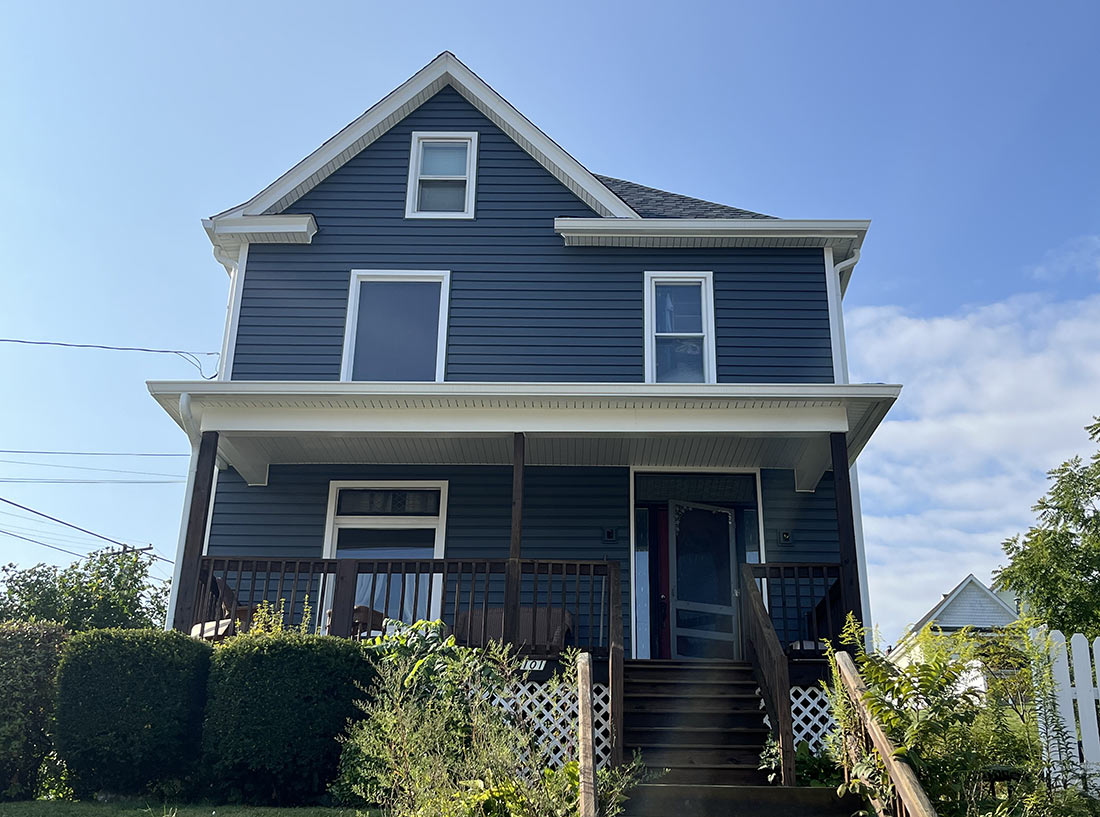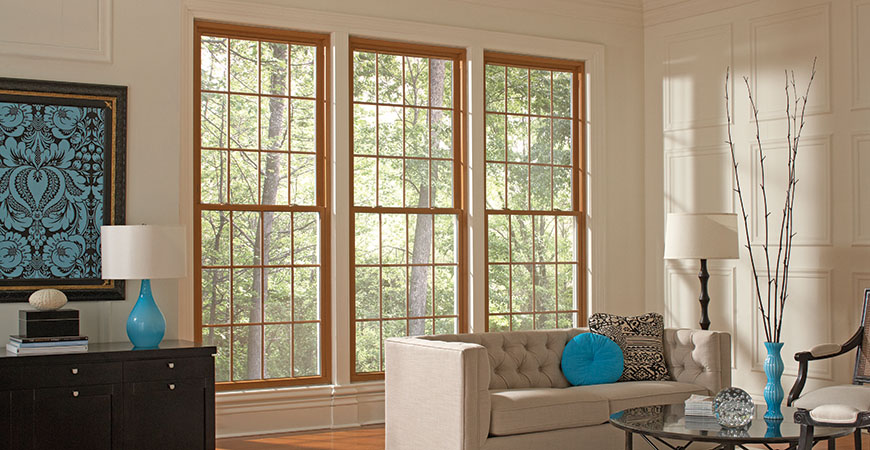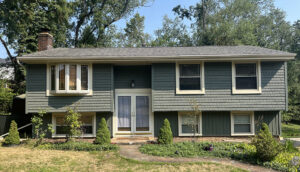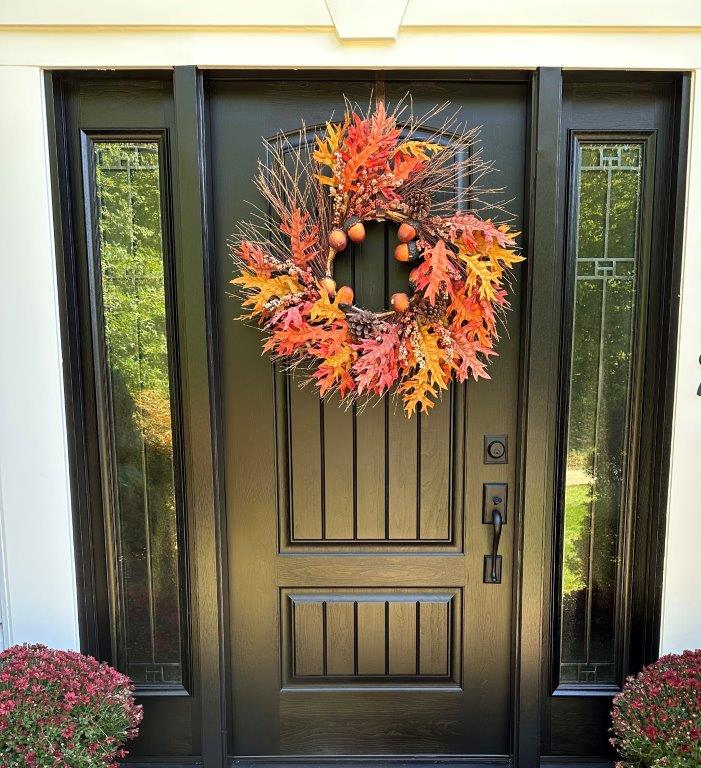As the heart of your home, windows play a critical role in both aesthetics and functionality, but choosing the right replacement windows can feel like a daunting task. Whether you’re intrigued by increased curb appeal or seeking energy efficiency, transforming your home in Pittsburgh starts with understanding your options. In a city known for its diverse architecture and changing seasons, the right windows can enhance your home’s character while providing comfort and savings. This ultimate guide is designed to navigate you through the essential aspects of selecting replacement windows, from styles and materials to energy ratings and installation processes. With expert tips and practical insights, you’ll be equipped to make an informed decision that not only elevates your living space but also adds value to your investment. Get ready to open the door to a brighter, more comfortable home!
Understanding the Importance of Replacement Windows
Windows are one of the most vital components of any home, contributing significantly to a house’s overall aesthetic appeal, energy efficiency, and comfort levels. In Pittsburgh, where the weather can vary drastically between seasons, having high-quality windows is particularly crucial. Replacement windows can dramatically enhance the visual charm of your home, giving it a fresh, modern look that can increase its market value. More than just a visual upgrade, new windows can also improve the functionality of your home, offering better insulation, reduced noise from the outside, and increased security.
The importance of replacement windows extends beyond aesthetics. Older windows often suffer from drafts, leaks, and poor insulation, leading to higher energy bills and uncomfortable living conditions. By replacing these outdated windows, you can significantly reduce your heating and cooling costs, making your home more energy-efficient. This is especially important in Pittsburgh, where winters can be harsh and summers can be hot and humid. Energy-efficient windows can help maintain a consistent indoor temperature, reducing the strain on your HVAC system and ultimately saving you money.
Moreover, new windows can provide better protection against the elements. In Pittsburgh, the weather can be unpredictable, with frequent rain, snow, and even strong winds. High-quality replacement windows are designed to withstand these conditions, preventing water damage and keeping your home safe and dry. They also offer enhanced security features, such as reinforced glass and stronger frames, giving you peace of mind knowing that your home is well-protected. Overall, investing in replacement windows is a smart decision that can improve your home’s comfort, efficiency, and value.
Key Factors to Consider When Choosing Replacement Windows
Choosing the right replacement windows involves considering several key factors to ensure you make the best decision for your home. One of the first aspects to look at is the style of the window. Different styles offer various levels of functionality and aesthetic appeal, so it’s important to choose one that complements your home’s architecture and meets your specific needs. Common styles include double-hung, casement, sliding, and bay windows, each with its own set of advantages and disadvantages.
Another crucial factor to consider is the material of the window frames. Window frames come in various materials, including wood, vinyl, aluminum, and fiberglass. Each material has its own benefits and drawbacks in terms of durability, maintenance, and cost. For instance, wood frames offer a classic, timeless look but require regular maintenance to prevent rot and decay. Vinyl frames, on the other hand, are low-maintenance and energy-efficient but may not provide the same aesthetic appeal as wood. It’s important to weigh the pros and cons of each material to determine which one is best suited for your home.
Energy efficiency is also a key consideration when choosing replacement windows. Look for windows with a high energy rating, as these can help reduce your heating and cooling costs. Energy-efficient windows typically feature double or triple glazing, low-emissivity (Low-E) coatings, and gas fills between the panes to improve insulation. Additionally, consider the window’s U-factor and Solar Heat Gain Coefficient (SHGC) ratings, which indicate how well the window insulates and blocks heat from the sun, respectively. By prioritizing energy efficiency, you can create a more comfortable living environment and save on energy bills.
Types of Replacement Windows: Pros and Cons
 There are several types of replacement windows to choose from, each with its own set of pros and cons. Double-hung windows are a popular choice due to their versatility and ease of maintenance. They feature two sashes that can be moved up and down, allowing for excellent ventilation and easy cleaning. However, they may not provide the same level of energy efficiency as other types, particularly if they are not properly sealed.
There are several types of replacement windows to choose from, each with its own set of pros and cons. Double-hung windows are a popular choice due to their versatility and ease of maintenance. They feature two sashes that can be moved up and down, allowing for excellent ventilation and easy cleaning. However, they may not provide the same level of energy efficiency as other types, particularly if they are not properly sealed.
Casement windows, which are hinged on one side and open outward like a door, offer excellent ventilation and unobstructed views. They are often more energy-efficient than double-hung windows because they close tightly against the frame, reducing drafts. However, they can be more difficult to clean and may not be suitable for all architectural styles. Sliding windows, which operate on a track and slide horizontally, are another option. They are easy to use and provide a wide view, but they can be prone to air leaks if not properly maintained.
Bay and bow windows, which project outward from the house, create a dramatic focal point and provide additional interior space. They are ideal for creating cozy reading nooks or showcasing a beautiful view. However, they can be more expensive and complex to install than other types of windows. Awning windows, which are hinged at the top and open outward, are great for providing ventilation while keeping out rain. They work well in combination with other window types but may not be suitable for areas with limited exterior space. Each type of window has its own unique benefits and drawbacks, so it’s important to consider your specific needs and preferences when making a decision.
Energy Efficiency and Its Impact on Your Home
Energy efficiency is a critical factor to consider when choosing replacement windows, as it can have a significant impact on your home’s comfort and energy bills. In Pittsburgh, where temperatures can vary widely throughout the year, energy-efficient windows can help maintain a consistent indoor temperature, reducing the need for excessive heating and cooling. This not only creates a more comfortable living environment but also helps lower your energy costs.
One of the key features of energy-efficient windows is double or triple glazing, which involves multiple panes of glass separated by a layer of gas, such as argon or krypton. This design improves insulation by reducing heat transfer between the inside and outside of your home. Low-emissivity (Low-E) coatings are another important feature, as they reflect heat back into the room during the winter and block heat from entering during the summer. This helps keep your home warm in the winter and cool in the summer, further reducing your energy consumption.
The U-factor and Solar Heat Gain Coefficient (SHGC) are two important ratings to consider when evaluating the energy efficiency of replacement windows. The U-factor measures how well the window insulates, with lower values indicating better insulation. The SHGC measures how well the window blocks heat from the sun, with lower values indicating better performance in hot climates. By choosing windows with low U-factors and SHGC ratings, you can maximize your home’s energy efficiency and reduce your reliance on heating and cooling systems.
Navigating Local Building Codes and Regulations in Pittsburg
When replacing windows in Pittsburgh, it’s essential to be aware of local building codes and regulations to ensure your project complies with all necessary requirements. Building codes are designed to ensure the safety, health, and welfare of occupants, and they can vary significantly between different municipalities. Before starting your window replacement project, it’s important to research the specific codes and regulations that apply to your area. A good windows replacement company will handle this so that the homeowner doesn’t have to concern themselves.
Another important consideration is compliance with energy efficiency standards. In Pittsburgh, local building codes often include requirements for energy-efficient windows, aimed at reducing energy consumption and promoting sustainability. This may involve meeting specific U-factor and SHGC ratings, as well as using materials and installation methods that enhance insulation and reduce heat transfer. By adhering to these standards, you can ensure your replacement windows not only comply with local regulations but also provide optimal performance and energy savings.
Selecting the Right Material for Your Replacement Window
![]() Choosing the right material for your replacement windows is crucial, as it can affect the windows’ durability, maintenance requirements, and overall appearance. There are several common materials to choose from, each with its own set of benefits and drawbacks. Understanding the characteristics of each material can help you make an informed decision that meets your specific needs and preferences.
Choosing the right material for your replacement windows is crucial, as it can affect the windows’ durability, maintenance requirements, and overall appearance. There are several common materials to choose from, each with its own set of benefits and drawbacks. Understanding the characteristics of each material can help you make an informed decision that meets your specific needs and preferences.
Wood is a traditional and timeless material that offers a warm, natural aesthetic. It is highly customizable, allowing for various finishes and styles to match your home’s design. However, wood requires regular maintenance to prevent issues such as rot, warping, and insect damage. It can also be more expensive than other materials. Despite these drawbacks, many homeowners prefer wood for its classic look and ability to enhance a home’s curb appeal.
Vinyl is a popular choice for replacement window frames due to its affordability, low maintenance, and energy efficiency. Vinyl frames are resistant to moisture, rot, and insects, making them a durable option for Pittsburgh’s varying weather conditions. They are also available in a wide range of colors and styles, allowing for easy customization. However, vinyl may not provide the same level of aesthetic appeal as wood, and it can be prone to warping in extreme temperatures. Working with a reputable replacement company is a must as they do very rigorous testing and offer highest quality vinyl windows.
Fiberglass is another material to consider, offering a combination of strength, durability, and energy efficiency. Fiberglass frames are resistant to moisture, rot, and temperature fluctuations, making them an excellent choice for Pittsburgh’s climate. They also require minimal maintenance and can be painted to match your home’s exterior. However, fiberglass windows can be more expensive than vinyl, and their availability may be limited compared to other materials. Aluminum is a strong and lightweight material that provides a sleek, modern look. It is highly durable and resistant to corrosion, making it suitable for various weather conditions. However, aluminum is not as energy-efficient as other materials, as it can conduct heat and cold, leading to higher energy costs. It may also require additional insulation to improve its thermal performance. Each material has its own unique advantages and disadvantages, so it’s important to consider your specific needs and preferences when making a decision.
The Installation Process: What to Expect
If you’re a homeowner who will be working with a replacement windows company then you don’t have to worry about the following section as the process will be handled by the replacement windows team.
The installation process for replacement windows can vary depending on the type of windows you choose and the specific requirements of your home. However, there are some general steps that you can expect during the installation process. Understanding these steps can help you prepare for the project and ensure a smooth and successful installation.
The first step in the installation process is to assess the existing windows and measure the openings. This involves removing any trim or molding to get accurate measurements of the window openings. Accurate measurements are crucial to ensure that the replacement windows fit properly and provide optimal performance. Once the measurements are taken, the next step is to order the replacement windows. This may involve working with a window manufacturer or supplier to select the right windows for your home and place the order.
Once the replacement windows arrive, the next step is to prepare the openings for installation. This involves removing the old windows and any remaining trim or molding. The openings are then inspected for any damage or rot, which may need to be repaired before the new windows can be installed. The installation process itself involves placing the new windows into the openings, securing them in place, and sealing any gaps to ensure a tight fit. This may involve using insulation, caulk, or other materials to improve the windows’ energy efficiency and prevent drafts.
After the windows are installed, the final step is to install the trim or molding to complete the look. This may involve painting or staining the trim to match the rest of your home’s interior or exterior. Once the installation is complete, it’s important to inspect the windows to ensure they are functioning properly and providing the desired level of performance. This may involve checking for drafts, ensuring the windows open and close smoothly, and verifying the seals are tight. By understanding the installation process and working with a qualified contractor, you can ensure a successful window replacement project that enhances your home’s comfort and energy efficiency.
Budgeting for Replacement Windows: Costs and Financing Options
Budgeting for replacement windows is an important aspect of the project, as it can significantly impact your overall expenses and financial planning. The cost of replacement windows can vary widely depending on several factors, including the type of windows, materials, and installation requirements. Understanding these factors and exploring financing options can help you create a realistic budget and ensure you can afford the project.
One of the main factors affecting the cost of replacement windows is the type of window you choose. Different styles, such as double-hung, casement, or bay windows, can have varying price points. Additionally, the material of the window frames can also impact the cost. For example, wood frames tend to be more expensive than vinyl or aluminum frames. Other factors, such as the size of the windows, additional features like Low-E coatings or gas fills, and the complexity of the installation, can also influence the overall cost.
In addition to the cost of the windows themselves, it’s important to consider the cost of installation. Professional installation is highly recommended to ensure the windows are installed correctly and provide optimal performance. Installation costs can vary depending on the contractor, the complexity of the project, and any additional work required, such as repairing damaged window openings or adding insulation. It’s important to obtain multiple quotes from reputable contractors to compare prices and ensure you are getting a fair deal.
Financing options are available to help make replacement windows more affordable. Many window manufacturers and suppliers offer financing plans, allowing you to spread the cost of the project over several months or years. Additionally, there are government programs and incentives available to help offset the cost of energy-efficient windows. These may include tax credits, rebates, or low-interest loans. By exploring these financing options and incentives, you can create a budget that works for your financial situation and ensures you can afford the replacement windows you need.
Finding the Best Window Contractors in Pittsburgh
Finding a reputable and experienced window contractor is crucial to the success of your replacement window project. A skilled contractor can ensure the windows are installed correctly, provide valuable advice on window selection, and help you navigate local building codes and regulations. There are several key factors to consider when choosing a window contractor in Pittsburgh to ensure you find the best professional for the job.
One of the first steps in finding a window contractor is to research and gather recommendations. Ask friends, family, and neighbors for referrals, and check online reviews and ratings from previous customers. Look for contractors with a proven track record of quality work and positive customer feedback. Additionally, consider reaching out to local home improvement stores or window manufacturers for recommendations, as they often have relationships with reputable contractors.
Once you have a list of potential contractors, it’s important to conduct interviews and obtain quotes. During the interview process, ask about the contractor’s experience, qualifications, and approach to window installation. Request references from previous clients and follow up to inquire about their experience with the contractor. Additionally, ask for detailed quotes that outline the cost of the windows, installation, and any additional work required. Comparing quotes from multiple contractors can help you determine the best value for your investment.
It’s also important to verify the contractor’s credentials and insurance coverage. Ensure the contractor is licensed and insured, as this provides protection for both you and the contractor in case of accidents or damages during the installation process. Additionally, ask about any warranties or guarantees offered on the windows and installation work. A reputable contractor should stand behind their work and offer warranties that provide peace of mind and protection for your investment. By taking the time to research and choose the right window contractor, you can ensure a successful and stress-free window replacement project.
Conclusion: Making the Right Choice for Your Home
Choosing replacement windows is a significant investment that can transform your home’s appearance, comfort, and energy efficiency. By understanding the importance of replacement windows, considering key factors such as window styles, materials, and energy efficiency, and navigating local building codes and regulations, you can make an informed decision that enhances your home’s value and performance.
Selecting the right material for your replacement windows is crucial, as it affects the windows’ durability, maintenance requirements, and overall appearance. Each material has its own set of benefits and drawbacks, so it’s important to weigh these factors and choose the one that best suits your needs and preferences. Additionally, understanding the installation process and budgeting for the project can help ensure a smooth and successful window replacement.
Finding a reputable window contractor in Pittsburgh is essential to the success of your project. By researching and gathering recommendations, conducting interviews, and verifying credentials, you can find a skilled professional who can provide quality work and valuable advice. With the right contractor and careful planning, you can achieve a window replacement project that not only enhances your home’s aesthetics but also provides long-term comfort and energy savings.
In conclusion, replacing your windows is a worthwhile investment that can significantly improve your home’s appearance, comfort, and energy efficiency. By following this ultimate guide and considering the various factors involved, you can make an informed decision that adds value to your home and enhances your living experience. Whether you’re motivated by increased curb appeal, energy savings, or improved functionality, the right replacement windows can transform your home and create a brighter, more comfortable living environment.



